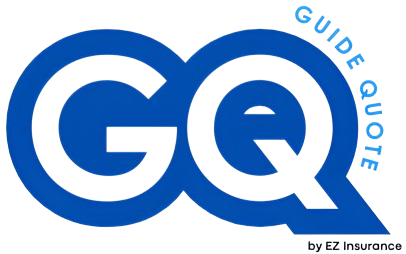

Monday-Friday 9AM-6PM EST
Health Insurance

In the United States, health insurance plays a crucial role in ensuring access to essential medical services and protecting individuals and families from the financial burdens associated with healthcare expenses. There are several types of health insurance plans available, each offering different levels of coverage and flexibility to meet diverse healthcare needs.
Compare the nation's top health insurance plans, CLICK HERE.
-
Health Maintenance Organization (HMO): HMO plans typically require members to choose a primary care physician (PCP) and obtain referrals for specialist care. They often have lower out-of-pocket costs but offer less flexibility in choosing healthcare providers.
-
Preferred Provider Organization (PPO): PPO plans offer greater flexibility in selecting healthcare providers, allowing members to visit both in-network and out-of-network providers without referrals. While PPOs generally have higher premiums and deductibles, they provide more choice and autonomy in managing healthcare.
-
Exclusive Provider Organization (EPO): EPO plans combine elements of both HMOs and PPOs. Like HMOs, they typically require members to use a specific network of providers, but they do not usually require referrals for specialist care. EPOs may offer lower premiums than PPOs but still provide access to a broad network of healthcare professionals.
-
Point of Service (POS): POS plans blend features of HMOs and PPOs, allowing members to choose between in-network and out-of-network care. Similar to HMOs, POS plans require a PCP and referrals for specialist care, but they offer greater flexibility in seeking treatment outside the network.
-
High-Deductible Health Plan (HDHP) with Health Savings Account (HSA): HDHPs typically have lower premiums but higher deductibles, making them suitable for individuals who are relatively healthy and want to save on monthly premiums. HSAs allow members to save pre-tax dollars for medical expenses, providing a tax-advantaged way to cover out-of-pocket costs.
-
The Affordable Care Act (ACA), also known as Obamacare, has significantly impacted the landscape of health insurance in the United States since its enactment in 2010. Under the ACA, several provisions were introduced to expand access to affordable health insurance coverage for individuals and families. One of the key components of the ACA is the Health Insurance Marketplace, where individuals and small businesses can shop for health insurance plans and potentially qualify for financial assistance based on their income.Through the Health Insurance Marketplace, individuals can explore a range of health insurance options, including various types of plans such as Health Maintenance Organizations (HMOs), Preferred Provider Organizations (PPOs), and High-Deductible Health Plans (HDHPs). The Marketplace offers a user-friendly platform that allows consumers to compare plans based on cost, coverage, and provider networks, making it easier to find a plan that meets their specific needs and budget.
One of the most significant benefits of the ACA is the availability of premium tax credits and cost-sharing reductions for eligible individuals and families. These subsidies can help lower monthly premiums and out-of-pocket costs, making health insurance more affordable for those with limited incomes. Additionally, the ACA prohibits insurance companies from denying coverage or charging higher premiums based on pre-existing conditions, ensuring that individuals with health issues have access to comprehensive coverage.
For those who do not have access to employer-sponsored health insurance or qualify for Medicaid, the Health Insurance Marketplace provides a vital avenue to obtain affordable coverage. By enrolling in a health insurance plan through the Marketplace during the annual Open Enrollment period or a Special Enrollment Period triggered by qualifying life events, individuals can secure the protection and peace of mind that comes with having health insurance.
Overall, the Affordable Care Act has played a pivotal role in expanding access to health insurance coverage and improving healthcare affordability for millions of Americans. Through its various provisions and the Health Insurance Marketplace, the ACA continues to serve as a critical resource for individuals and families seeking comprehensive health insurance options tailored to their needs and circumstances.
Having health insurance is paramount for several reasons. Firstly, it provides financial protection against unexpected medical expenses, which can otherwise lead to significant debt or financial hardship. Secondly, health insurance promotes preventive care and early intervention, enabling individuals to address health concerns before they escalate into more serious conditions. Additionally, having health insurance ensures access to a network of healthcare providers and facilities, facilitating timely medical treatment and improving overall health outcomes.
Fortunately, finding a health insurance plan that suits your needs has become increasingly accessible and straightforward. Many insurance companies and online marketplaces offer tools to compare different plans based on coverage options, premiums, deductibles, and provider networks. Additionally, individuals may be eligible for subsidies or tax credits to offset the cost of health insurance premiums through the Health Insurance Marketplace or state-based exchanges. By exploring your options and understanding your healthcare needs, you can find a health insurance plan that provides comprehensive coverage and peace of mind for you and your family.

Looking for Insurance?
Get a FREE Quote in Minutes!
